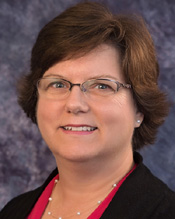What shall we do with online classes? We shall do the same thing homeschoolers have been doing with curricula since homeschooling began—experiment, find what works for us, talk about them to others and use them as a tool to homeschool our kids. We will educate ourselves about them and then move forward. The following information will help you do just that.
What are online classes?
Our definition of online classes includes:
- Classes where a portion of the instruction is provided through an online media format by someone acting as the instructor
- Classes where the online instructor develops the course outline, creates and grades assignments and tests, interacts with the student and provides accountability.
Are online classes and a virtual school the same thing?
In the broadest definition a virtual school would be any course delivery system that uses the Internet to deliver instruction from a distance. Distance learning has been around since the turn of the century, and institutions like Keystone High School, Calvert (for elementary), several universities, BJU or ABEKA Video or Satellite schools are forerunners in this field. Traditionally, parents could choose an option that allowed them to simply access the materials and do their own grading, or an option that provided distance teacher oversight, direction and grading.
By this definition, online education is just a new format of the same concept in distance learning. Using a computer has allowed these classes to include live instruction and interpersonal interaction as part of the distance learning experience. Individual courses are available in an a la carte format—choose what you want, when you need it. Many homeschool families use online providers for some of their courses, rarely for all of the courses a student needs.
What about accredited programs and the NC Virtual Public School?
Accredited programs, while they are technically virtual/distance programs, generally establish their requirements and issue an official transcript from their institution. When you enroll in an accredited program, you are giving control over to that institution in exactly the same way as if you were enrolled in a brick and mortar school, and you must meet their expectations and accept their decisions in order to be promoted or graduated. The accredited institution is a virtual school that the homeschooler attends. Just remember, if you enroll your child in an accredited program, you must still comply with all the other homeschool regulations, and your designation remains that of a private homeschool in NC.
A major point of misunderstanding revolves around the NC Virtual Public School, which is a chartered public institution in the state of NC. Other virtual or distance learning programs, even ones where you can earn an accredited diploma, are not tied to the NC Department of Public Instruction and therefore do not compromise your homeschool status. Currently, you may not enroll in the complete Virtual Public School program and remain a homeschooler because the NC Virtual School is a public education institution.
Homeschooled families may enroll their child in one to three classes of the NC Virtual School as a visiting student without sacrificing their homeschool status, but these courses are usually not free. Current costs for individual classes are listed as $510-$640 per year.
Please note that this NC Virtual School concept is so new that even the officials in charge sometimes disagree about what should and should not be allowed. The rules are likely to change as these issues are resolved.
Are online classes legal in NC?
Utilizing online classes and other distance learning programs is completely legal and valid in NC. Core as well as non-core classes may be used, thanks to recent amendments to the NC homeschool law. (NCHE was successful in initiating and pursuing these changes in the law and getting them passed.)
The Technology
Are the classes synchronous or asynchronous?
These terms indicate the way the classes function, and the experiences are quite different. It’s important to ask before signing up.
Asynchronous in essence means not live or not at the same time. In an asynchronous class, the assignments, tests and sometimes reading material are found in a certain room online, accessed only by class enrollees. The teacher posts the assignments, and the student reads the assignments and completes whatever exercises and tests the teacher requires. While the student does work at his/her own pace, in general, there are firm deadlines to be met. The students use discussion boards to hold discussions. They post a message or question and wait for people to come to the board to post responses. The teacher is usually available through email or Skype or some such medium.
Synchronous classes are live or at-the-same-time classes. Students and teachers meet in some kind of gathering place (virtual classroom, etc.), and the teacher conducts a live lesson. In some classes, the teacher is visible on video, and the students interact with the teacher and each other through chat, microphone and other interactions. The homework is usually handed in to the teacher using something like a Dropbox on the class website. Depending on the teacher, this synchronous format is often the one that works better for most students because it can be quite interactive.
What platform does your class/school use?
A platform is the program system that a class provider uses to get the class to your computer. This platform plays a huge role in how successful the online experience is for your student because it governs how the classroom works.
The first platform to consider is the class management system. This would be where students receive and submit assignments electronically, participate in discussions, take tests (if the tests are electronic) and find their gradebook. The two most popular online management systems are Moodle and Haiku (powered by Blackboard). Some courses operate totally within this asynchronous venue. Both of these systems are widely used in traditional schools and colleges as a means for students to access class information.
For classes that involve a live class element, there are several programs in use. Any program that allows for a live presentation of the teacher teaching and interaction between and among the students will work, though some work better than others. These platforms often have video on which the teacher is seen and some type of white board where the teacher displays Power Point type instructional slides. Some programs, like Kahn Academy, use a tablet function that allows their written or typed input to display on the computer while they talk even though the teacher may not be seen at all. I have seen a teacher use the video teaching feature to show their white board as they worked math problems.
To accomplish this live action synchronous class, some courses use Web Ex, which is technically a virtual meeting space created for businesses. One relatively new provider is using a meet up feature of Google to hold class, but I haven’t seen this in action. I understand that it works similar to face time. The most popular platform for large academic providers is BlackBoard. There are some smaller companies that provide a classroom format similar to BlackBoard in concept. The common feature among all of these is the teacher on video component at an established meeting. It is important to try out the platform if possible since quality of experience can vary. It is also important to ensure your particular computer and Internet service will support the classroom platform. Live classes, using video, consume a lot of bandwidth, and those with unreliable or weak Internet service will be frustrated.
Almost without exception among the providers we surveyed, these live action platforms are recorded for students to view at different times. Having repeated access to the lecture portion of a class is a huge benefit for many students, especially as they acclimate to taking a real class with notes and a teacher.
What kind of interaction is involved in classes?
One fear of parents and students is that they will be watching a video for class all the time. In the most interactive form of online classes, this is not the case. The teacher teaching is similar to a regular class except a white board projection is used rather than a chalkboard. Students communicate with the teacher in real-time through a chat feature or possibly through a microphone. In many cases the students can chat in real-time with one another and ask questions or make comments. In asynchronous classes, where all interaction is through email and discussion boards, students also interact with the teacher and each other in a less immediate or personal way.
In both cases there is a communication venue by which relationships are forged between students and teachers and also between the students themselves. The type and quality of the interactions depends a great deal on the teacher. As a parent and an online teacher, I have found that there is more relationship in synchronous classes, but even that depends how much student involvement is allowed or required. Many courses use private chat rooms with a whiteboard where students collaborate on projects. This type of interaction builds relationship as does allowing student interaction during class. In the class I just finished teaching, after making a strong effort to get students to collaborate and discuss, I found the students had formed strong personal bonds despite being spread across the country.
What kinds of students succeed?
As a parent and a teacher I would say that most students can succeed in an online class given proper training and support. The biggest hurdle is learning the specifics of submitting assignments electronically or using other features of the course for electronic testing or projects. Students who are generally good readers and sufficient writers have no problem learning to participate, and students today are generally so tech savvy that they adapt well to the online project media, interactive games and learning activities. In fact, any student who can text on a phone can participate in class! Beyond the technology, an online class is no different from a traditional class.
What kinds of students fail?
Students who fail to learn the necessary technology will fail the class. If a student can’t turn in papers or take tests on time, he will not succeed. If a family does not have the proper computer, Internet access or technology acumen, they will become frustrated and likely drop the class. Most people can learn what they need to for success, but some are unwilling to learn and overcome frustration, or unable to upgrade to a sufficient computer system.
Self-starters have a huge advantage over students who need prodding. It may be harder for distractible students to attend to and grasp all the details of the lecture, deadlines and other specific instructions. These students may be more successful with more direct contact with the instructor.
What are the pros and cons?
Cons
- A computer with reliable access is required.
For video classes, high speed Internet is necessary. (Asynchronous classes are a possible solution.)
- Students can feel isolated.
- Some students need more hands-on, in-person instruction.
- Courses can be costly (watch for discounts).
Pros
- You save time and money, because you don’t have to travel to a class.
- The pressure is off you to control everything.
- Students gain from having a teacher who may be a specialist.
- You retain some flexibility in scheduling.
- Students learn valuable classroom and life skills, including:
- Dealing with deadlines
- Taking notes from lectures
- Taking tests
- Interacting with instructors
- The competition can provide motivation.
- Online instruction has fewer distractions than a live class for some LD students.
Where do I find providers?
An Internet search of online homeschool courses will probably bring up more options than you can process—everything from small providers or individual instructors to large and well-organized course providers and online academies. It is a good idea to read message boards and ask for suggestions or referrals (remember that one person’s bad experience might not mean the whole program is bad). The number of offerings increases each year, and the quality may vary widely between providers.
Your online search may also turn up a wide selection of free courses through several university systems. Basically, they are online course outlines that the student works through independently, and there is no teacher access. I have seen a couple that included video instruction. They might be great for the self-motivated, self-educating student, but most students prefer a more engaging interactive class format.
Questions to Ask an Online Provider:
1) Are your classes synchronous or asynchronous?
2) What platform do you use?
3) Can the students see the teacher via webcam?
4) How do the students interact with the teacher (and vice versa)?
5) How much access do the students have to the teacher?
6) How are assignments turned in, and scored?
7) If live classes are used, are there recordings? How long can the students access the recordings?
8) Can we experience a sample of a real class?
9) How do you do languages and science labs?
10) How do you keep my student’s information and ID secure?
Summary
Online classes have opened many new options for homeschoolers to enjoy the best of both worlds. Through selective online courses families can access specialist teachers, specialty courses and topics that might not be accessible otherwise. Online classes do take some pressure off mom, and families can use the online course to ensure they don’t become bogged down! Not every family will need or want the options that online courses provide, but for those families who use it, online instruction may combine the flexibility and effectiveness of homeschooling with the inspiration and motivation of a traditional classroom.





